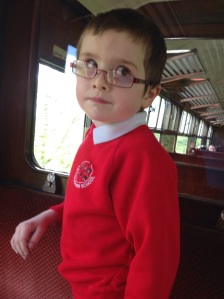Another day. Another appointment. Another night of being woken through the night. More phone calls. More screaming. More bodily waste to clean up. More pressure. Never-ending stress.
Every parent gets stressed. Everyone needs a break at times from the 24-7 demands of raising children. But sometimes the added pressure of having children with additional support needs just becomes overwhelming when the days and nights become one, the paperwork piles up and everyone wants a piece of you.
What do you do when a professional calls you and you need to take the call yet your child needs your urgent attention at the same time (I could list any number of things they could be doing here like smearing faeces, climbing in a bath of water fully clothed, feeding the fish a tub of sudacream, eating frozen food from the freezer or escaping out of a window or door)? What do you do when you HAVE to find the time to complete urgent paperwork but your eyes can barely stay open and your mind can not focus due to exhaustion? How do you explain to a child with very limited understanding that their routine needs to change to go to yet another hospital or clinic appointment? What do you do when one professional says one thing and another disagrees and you are caught in the middle? How do you cope when mealtimes make you cry because your child just won’t eat and the other one just won’t stop eating? How do you remain at peace when your child comes home from school wearing clothes for the opposite sex because yet again he has gone through four pairs of trousers in a school day even whilst wearing nappies?
Everyone wants a piece of me.
I am expected to turn up at meetings and act professionally even when at times my heart is breaking. Crying is meant to be reserved for the privacy of your own home and only makes professionals question your mental stability if seen in public.
I am expected to follow through programmes designed by professionals who think they know my child better than me and who think I have nothing to do other than run with their latest plan.
I am expected to answer phone calls and emails in a timely, professional manner as if working in an office environment while the washing machine is spinning in the background, the children have technology at full blast (what other volume is there?) and the window cleaner is knocking my door asking for money.
I am expected to turn up to the right appointment, at the right day and time, with the right child, focussed, prepared and calm with a child who is alert, receptive and willing to participate in whatever therapy they are having today. And all this with a smile on my face and an enthusiasm for the programme.
I am expected to do homework with my children, take them to activities to ‘broaden their horizons and stimulate their interests’, give them a healthy diet and exercise, nurture their talents and spend quality time with them, when in reality we spend our evenings making chicken nuggets for tea again, watching the same programme on TV for the fiftieth time and coping with screaming children, toys and technology being thrown across the room and being physically attacked because I dared to run them a bath!
Schools expect me to jump at the first mention of ‘parent involvement’, hospitals expect me to fly my children to appointments (well they certainly don’t expect me to park given the lack of spaces they provide!), social workers expect to come to a house that is well run, clean, yet homely and comfortable, and my children need me to hold them, love them and help them all the time.
Yesterday I had one meal. It was one of those days. And the fact is I am not alone. There are so many parents in the same situation. Living with stress that is incredibly high, balancing meetings, appointments, therapies, professionals, children and the demands of running a home whist caring 24/7. Because despite the volume of people involved with my children it will still be me tonight who cooks them both tea, has clean clothes for them to wear to school tomorrow, reads them the bedtime story and kisses them goodnight. It will still be me who lies with them through the night while they cough or cry or scream.
It is me who knows them, protects them, loves them.
Everyone wants a piece of me. But these two have a piece that no-one else can ever have. They have my heart. Every other piece of me can just wait while I take a moment to hold them. The phone can keep ringing, the post can wait a moment and the emails can stay unread just a little while longer. Whoever else wants or needs me these two always come first.












